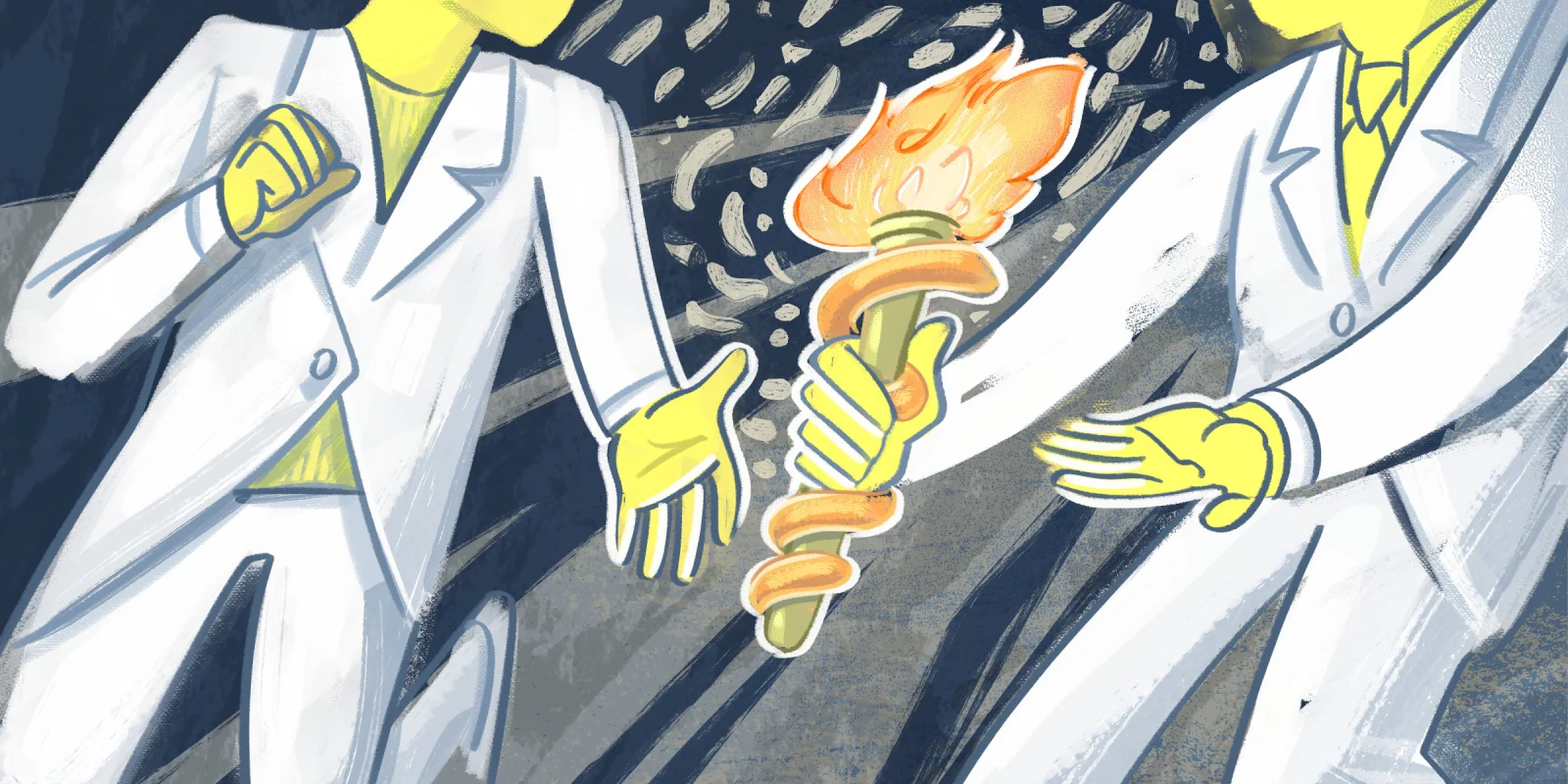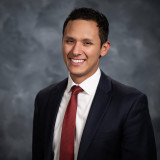As someone with two medical professionals for parents (a doctor and a nurse), I have a unique perspective on medicine. In our house, words like urine ketones, glucose, and anion gap were part of the day-to-day vocabulary; I may even have learned medical jargon before I learned how to walk. During dinner, family conversations would always broach the topic of medicine; during playtime, I’d listen to my parents’ hearts with a stethoscope. Given this upbringing, it was inevitable that I’d land in medicine — not just because my parents did it, but because they did it in such a way that made it exciting to be part of.
To my family, medicine was a way of living more than just a way of making a living. My parents emphasized the joy of the profession: They explained to me that clinicians have the honor of helping people in a vulnerable state. That they get to learn and grow in a field that seems to unearth new findings all the time in a mission to improve people’s health. That they get to work with a team of dedicated health care professionals who seek to provide the best care for the patients. And that ultimately, they build new bridges with their communities to make a difference in health and wellness.
From my parents, I also learned that the beauty and purpose in taking care of people can have a positive impact on not just patients, but on clinicians as well. The patients I have had over this past year have borne this out: Their health is improving, their efforts in making a change are paying off, and their joy in seeing the result has given me a sense of fulfillment.
Beyond learning about the rewards of medicine from my parents, I have also learned practical advice from them. For instance, my parents both stressed to me the importance of taking a step to ask yourself pertinent questions before proceeding with a treatment plan. Before every patient encounter, I repeat the following checklist: Is there a more affordable solution with the same outcome? What matters the most to this patient? Are the patients understanding what I am saying? Will the patient be able to follow through to resolve their symptoms?
In addition, I learned that to excel in medicine, you need to lead with love. When I accompanied my dad to work, I could tell that he loved what he did, and was loved in turn. I watched the way he tended to the needs of each patient; the way he listened to the patient’s requests; the way he made the person feel seen; and the way he brought joy to the patients. I learned that sometimes an ear that listens has more of an impact than a mouth that offers solutions.
Furthermore, I learned from my parents that I shouldn’t expect medicine to be all roses. They were both vocal about the struggles of medicine, which has helped me process and prepare for my own version of these struggles. For instance, my dad would share with me stories of how residency was for him when he was in his 20s. He would work 36 hours straight, rest for a few hours, and then show up the next day. He would find places that gave away free food to save money. He would take his date (now my mom) out on walks because that was all he could afford.
Similarly, I myself have endured stress that can be hard to extinguish. The hours in residency can sometimes lead to fatigue. The world where residents are expected to be the best version of themselves even amid the demands of the job and the inherent competition has occasionally led to maladaptive perfectionism. And the toll of dealing with sick and dying patients has sometimes been hard to bear.
However, I am fortunate that I have my parents to call when I am struggling. Even to this day, when I call my mom during my lunch break, we chat about our day in the hospital or about our patient interactions. Sometimes I’ll even still seek my parents’ advice when it comes to patient cases.
On these calls with my parents, I feel free to relay all kinds of burdens — and all kinds of joys. Together, we share negative news about patient deaths, as well as beautiful news of patients improving or being discharged. When I tell them about the latter, I can feel their smiles through the phone. I am lucky: My parents understand what I’m going through — and their passion reminds me to keep going.
As I walk through the halls of my hospital, I feel my parents’ influence all around me. I feel close to them, and I thank them for instilling in me a passion to serve the health needs of others.
How has your family influenced your medical path? Share your experiences in the comments!
Dr. Ricardo Chujutalli is a family medicine resident in Orlando, FL. He received his masters in business administration from La Sierra University and masters in bioethics from Loma Linda University. He is the co-founder of inCLINICALS, a platform where health care students rate and review their preceptors. Dr. Chujutalli was a 2022–2023 Doximity Op-Med Fellow.







